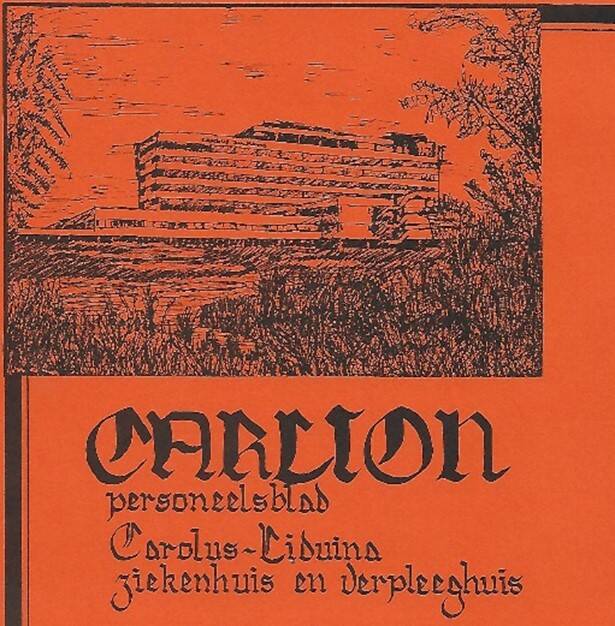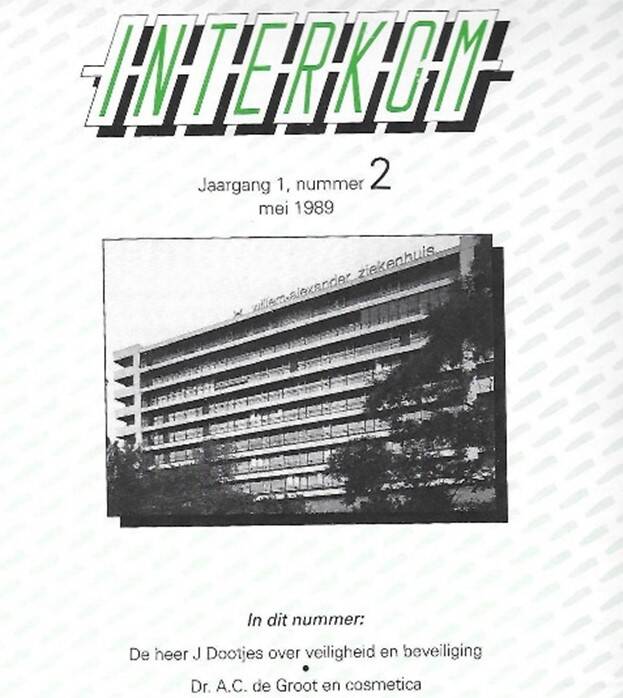Reactions to the dissertation
Already in the years before the promotion, I was regularly approached by journalists for interviews about cosmetics. Usually they had first contacted the Dutch Society for Dermatology and Venereology or the dermatology department of a university hospital, which would refer the journalists to me. Of course, people there knew through my activities in the Contact Dermatoses Committee and my publications in the Dutch Journal of Medicine and the Newsletter Contact Dermatology that I was involved in research into cosmetics. Mostly it was about side effects, claims of efficacy, especially against wrinkles, and the meaning (none) of terms such as 'hypoallergenic' and 'dermatologically tested'. That led to a number of articles in national newspapers, in which I was quoted or interviewed.

Radio and television
I have also been on television in a number of short fragments, even on German TV, where I told auf Hochdeutsch how important it is to make cosmetic labeling mandatory. I much liked my radio appearances with Wim Bosboom and Ellen Brusse on Saturday mornings in the Tros Nieuwsshow (I think this was after my PhD). The listeners could ask any question about cosmetics and these were answered by me. That was such a success the first time that I was invited to the same show twice more. I had said that I was a little apprehensive about driving back and forth. No problem, someone from the studio picked me up and brought me back. I got on very well with Ellen Brusse and Wim Bosboom, we were well attuned to each other and there was a lot of laughter during the live shows. At one point Bosboom, who was a bit older, asked about cosmetics during the broadcast: 'And alum, Dr. De Groot'? I replied, 'To be honest, I think that was a bit before my time, mister Bosboom'. Alum is a natural mineral that used to be part of standard shaving equipment. The stone was used to quickly stop the bleeding of minor shaving wounds, just as silver nitrate is used in dermatology. At that time, the razors were already so good and also established that little was shaved with a real knife anymore, which Bosboom apparently still did. I also brought in several anecdotes. For example, a listener claimed certain effectiveness of a cosmetic. What did I think of this? 'I have to quote my old teacher from Groningen, Dr. Edze Kruizinga', I replied. He used to say in such a situation, 'Eerst zain, dan leuben'. That was Groningen accent or imitation Groningen accent for 'first see, then believe'. Most townspeople (original residents of the city of Groningen) understood his Groningen language poorly. But I have adopted his critical attitude, so first show proof, I would like to say'. Shortly afterwards Kruizinga called me by telephone, he had heard it and thanked me for the advertisement I had made for him. He had really liked it and the shows.
Newspapers
My dissertation received a lot of attention in the media. The Knipselkrant Aktueel (which was apparently written with a 'k' at the time) of the University of Groningen even devoted an entire theme issue to it. Articles were published in the Volkskrant, de Telegraaf, Nieuwsblad van het Noorden, De Gelderlander, Brabants dagblad, Leeuwarder courant, Algemeen dagblad, Het vrije volk, Dagblad Noord Limburg, Limburger, Drents Asser courant, Nieuw Kamper dagblad, Nieuws van de dag, Deventer dagblad, Gelders Overijsselse courant, Rotterdams nieuwsblad, Nieuw Apeldoornse courant, Leidse courant, Dagblad Rijn en Gouwe, Twentse courant, Meppeler courant en De stem.

In the national newspapers, a – usually not very flattering, I have never been very photogenic – photo was added.



Remarkably, my research on side effects of cosmetics in the general population and in the group of clients of beauticians received the most attention. It was found that 12% of the general population and 28% of clients of beautician had experienced an adverse reaction to a cosmetic in the previous 1-5 years. This was often taken completely out of context by the media and headlines such as 'A million Dutch people get itchy and red spots', 'Irritated by the beauticians', 'Cosmetics cause many side effects', 'Quarter of beauty salon customers go to the doctor afterwards' (a completely incorrect representation of matters), 'Side effects among clients of beauticians', 'Cosmetics have too many nasty side effects', 'Many complaints about make-up', 'Often side effects after using cosmetics', and 'Quarter of beautician customers suffer from side effects'. De Telegraaf went all out with 'If you want to be beautiful, you have to suffer...'. Well, in the light of this, you shouldn't be surprised that some in the cosmetic industry hated me (and were also a little afraid of me). Incidentally, I also have had a number of advisory positions at cosmetics companies and received all kinds of paid assignments. I have never received any nasty reactions from beauticians themselves. Fortunately, the Brabants Dagblad ('s-Hertogenbosch is in the province of Brabant) quoted me in the headline with 'I am not an enemy of cosmetics'. It's a pity that just that one photo in which I have a very arrogant appearance was chosen.

Naturally, the 'house magazines' of Carolus and Willem-Alexander Hospital also paid attention to my promotion.



